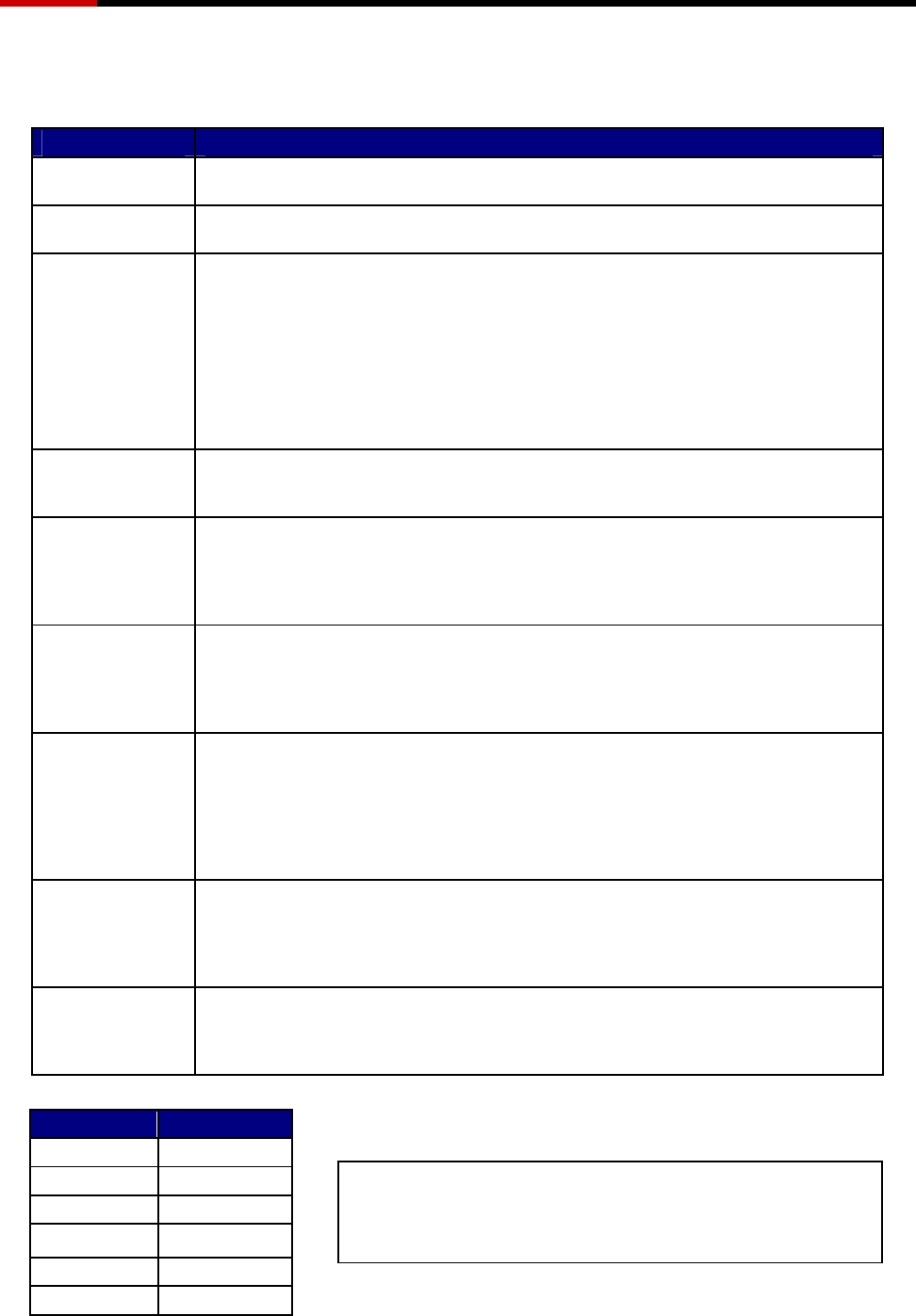
Server RSV-S8 User Manual
4.2.7 RAID GROUPS OVERVIEW
RAID Groups allow Enter values in all fields and click Create to create the RAID Group.
FIELD DEFINITION
RAID Group Label Enter an identifiable name for the RAID group. This value can be any string (up to 8
characters including blank spaces) to help users identify this volume.
RAID Group Select a Group ID from the available ID list. The maximum number of RAID Groups per
controller is 8, so Group ID can be any number between 0 and 7, inclusive.
Configuration Select which RAID level is to be used to configure these members:
• Contiguous (for virtual disk).
• Concatenated (for multiple concatenated segments).
• Striped (for RAID 0)
• Mirrored (for RAID 1)
• Mirrored Striped (for RAID 10)
• Parity RAID (for RAID 5)
Capacity Select a value to define the total usable capacity of the RAID Group or manually enter
the volume size in gigabytes (GB). Selecting MAX will create the largest RAID set
possible with the drive(s) selected.
Chunk Size Select a value to define the chunk size (stripe size) for performance tuning. In general,
large stripe sizes are best for large files that are accessed sequentially (for example,
media streaming files) and smaller sizes are better for randomly accessed data like
databases. This parameter is not used for Contiguous (JBOD), Concatenated, and
Mirrored configurations.
Rebuild Priority Select a value to identify how quickly the controller should rebuild data on a disk after a
hardware failure. A value of 1 is the lowest priority and will take the longest to rebuild. A
value of 10 is the highest priority and will rebuild the fastest, but may require more CPU
resources, which might affect the computer’s performance. This parameter is not used
for Contiguous (JBOD), Concatenated, and Striped configurations.
Check Pointing Click the On or Off button to enable or disable the Check Pointing feature. When Check
Pointing is enabled, restoring data is very fast after an unexpected power loss, although
normal performance may be slightly reduced. When Check Pointing is disabled, normal
performance is improved, but restores can take a long time to complete. This selection
is only available when the selected RAID configuration is Mirrored, Mirrored Striped or
Parity RAID, and the “Advanced RAID Features” checkbox in the
Configuration/Advanced Options dialog is checked.
Parity Click the On or Off button to enable or disable the ability to return “dirty” data after an
unexpected power loss and all of the data could not be written to disk, rather than
taking the volume off-line. This selection is only available when the selected RAID
configuration is Parity RAID and the “Advanced RAID Features” checkbox in the
Configuration/Advanced Options dialog is checked.
Devices Select the RAID member devices from the available device segment grid. Up to five
members can be selected for Contiguous, Concatenated, Mirrored, Striped or Parity
RAID modes (although Mirrored RAID Groups will typically contain only two members).
Exactly four members must be selected for Mirrored Striped mode.
RAID Level Min # of Disks
0 2
1 2
5 3*
10
4
*
Contiguous 1
Concatenated 1
Once all parameters have been selected, select “Create” to
create the RAID Group. When finished, press Cancel to exit
the Create RAID Group Dialog.
67


















